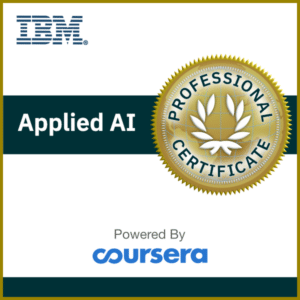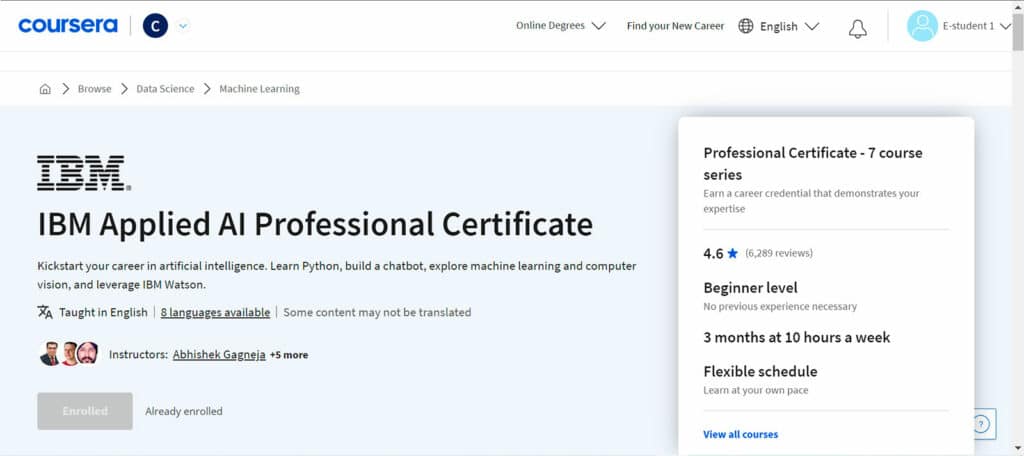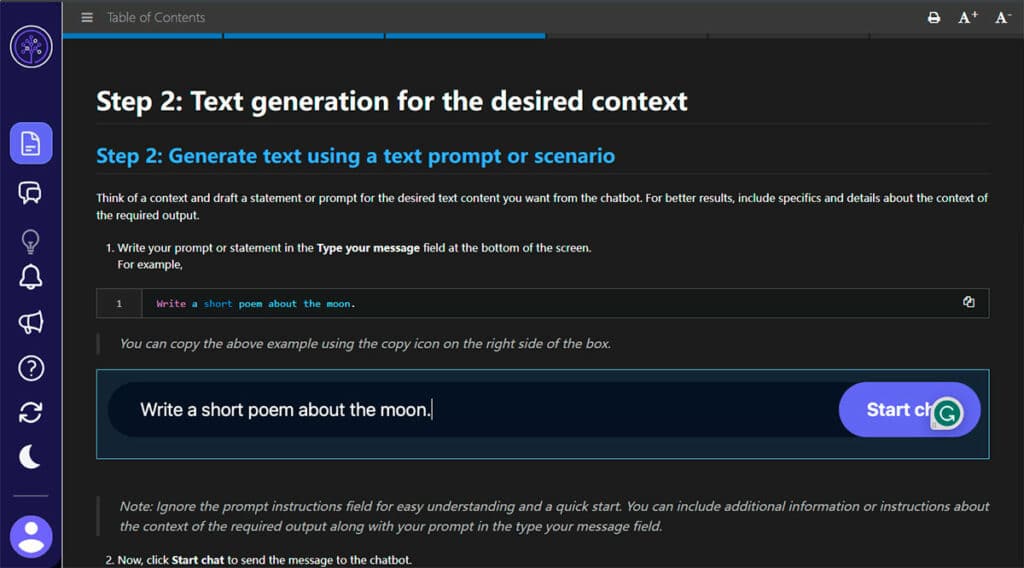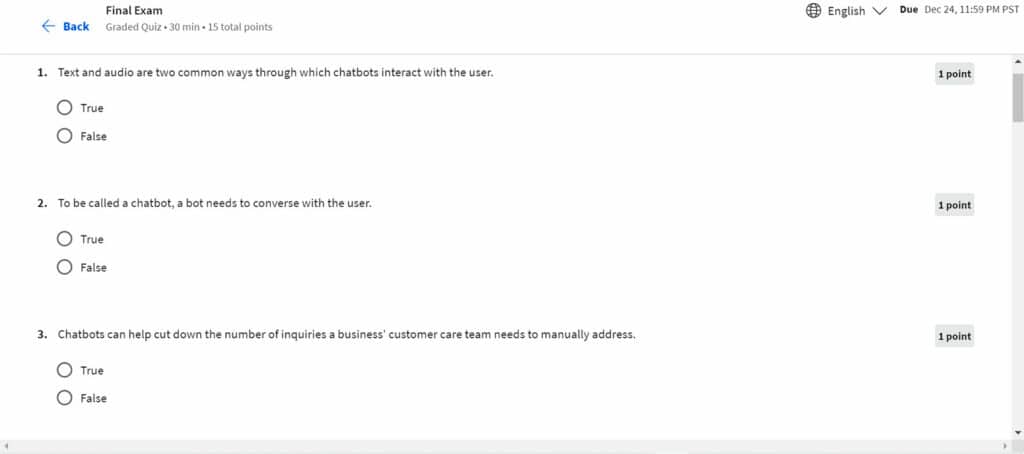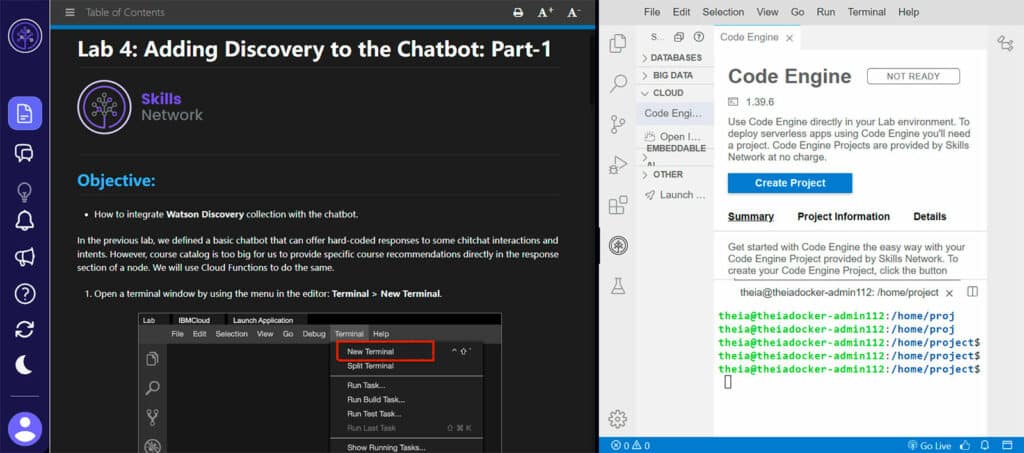The IBM Applied AI Professional Certificate is a beginner-friendly program spanning over seven courses, designed to give a comprehensive overview of AI, starting from the basics and advancing to more complex concepts. Learners will explore a variety of topics, including machine learning, deep learning, neural networks, AI chatbots, and computer vision.
One of the key highlights of the program is its practical approach, leveraging IBM Watson AI services and Python programming to create AI-powered solutions with minimal coding. This aspect is particularly beneficial for those looking to apply AI in real-world scenarios without delving deep into the complexities of AI algorithms and coding. The program includes several hands-on projects, such as building AI chatbots, developing custom image classifiers, and creating computer vision applications, all aimed at reinforcing the learning experience.
In terms of time commitment, the program is structured to be completed within 3 to 6 months, with an estimated weekly engagement of 10 hours. This pacing allows learners to thoroughly absorb the material without feeling overwhelmed. The course sequence, while flexible, is designed to build upon each module, making it advisable to follow the recommended order.
Upon completion, participants will receive not only a Professional Certificate from Coursera but also a digital badge from IBM, recognizing their proficiency in applied AI. This certification can open doors to various career opportunities in the field of AI, such as AI developer, data scientist, machine learning engineer, and more.
The IBM Applied AI Professional Certificate is an ideal choice for anyone looking to gain a solid foundation in AI and its applications, whether they are students, developers, technology consultants, or simply AI enthusiasts. With its practical focus and industry-aligned curriculum, the course prepares learners to be at the forefront of AI advancements and applications.

